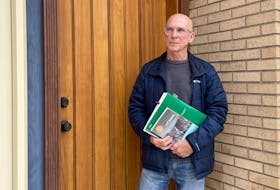Last week I saw a woman sit on her veranda all day long, reading, knitting and just chilling out. I was so jealous because I crave downtime like that but I’m not even sure I could relax if I was given a day to do nothing. Could that ever be me?
Jenny
I too have fantasies of having a day that requires me to do nothing productive but with children, business and family demands, but it rarely pans out. One argument is the nature of life is filled with dirty laundry, work responsibilities and the constant need to put food on the table. So let’s be clear, I am not asking you to neglect your children or your work so you can sip pina coladas poolside for a week. There is, however, copious research which shows that we’ve become addicted to doing to the point where we can’t chill out even when we have the time. Through our busy, competitive lifestyles, we’ve evolved into human doings, and it sounds like you’re ready to take the pilgrimage back to being human again.
Let’s start with chronic stress. Addiction to stress may seem ridiculous, because who would ever expose themselves to stress long term by choice, right? Wrong. Stress releases chemicals that can lock us into a hyperactive, go go go cycle. These chemicals, such as adrenaline and cortisol, put our systems into overdrive, not unlike certain drugs (which is why stress addiction has some parallels to drug addiction).
Another chemical that is released during times of stress is dopamine, the feel good neurotransmitter, which stimulates our reward centre in the brain. Dopamine is at the heart of our need to repeat certain behaviors that reward us with achievement or affirmation from others. I find it helpful to know this stuff intellectually so I can compassionately guide myself away from my desk and onto my yoga mat, or bike seat or paddle board. What about you? Armed with this knowledge, where would you take yourself for a joyous excursion or restful retreat?
What’s more, these stress patterns can also be a repercussion of trauma, which can live in our nervous systems and shape the way we live, parent and work. If you notice yourself constantly rushing to get things done, or living in a frenetic, panicked way, I strongly encourage you to read up on the effects of trauma, which can cause us to feel anxious and unsettled almost all the time.
One practice that we did in our trauma-informed mindfulness conference last week was to choose an object that can serve as a reminder to relax and savor the moment. This can be a crystal, a screensaver, a sticker on your dash, anything at all, so long as it returns your attention to your breath and your desire to live more peacefully. Over time, all you’ll need to do is pull up this external resource in your mind and you’ll have the power to slow down and soften into the moment.
The good news is that we can break the cycle of stress, anxiety and trauma by rewiring our brains with a little mind training and lifestyle tweaking. I challenge you to a day off, where you let yourself sink into that outdoor swing with a good book and a tall glass of iced tea. Your mind, your body, your bowels and your loved ones will thank you.
Blair
Many of us come from a generation where productivity was essential, as we answered the question “How can I do more and produce more?” Then we had children, who witnessed us model this behavior and adapted the same way of life. I can relate to this as I am the son of immigrant parents who worked long, hard days and I adopted the same work ethic. It was not until I was nearing burnout that I knew I needed to explore a new approach to life.
It all comes down to evaluating whether your life is working for you or against you. One way of answering this question is to take inventory of your energy: Are you fulfilled and energized or exhausted and drained on a daily basis?
It sounds like you’re living beyond your energy means and are longing for more tranquility and balance. This can be achieved by retraining your mind, which can be done by taking the opportunity for stillness. But don’t panic, even five minutes a day to start will help.
One way to fill your moments of stillness is to sit in a comfortable position, with your spine tall, and start watching your breath as it fills and empties your lungs. As you focus on your breathing, be aware your mind will wander, and when it does, just draw your attention back to the breath. If it doesn’t seem like it’s working, just know that over time, you’ll become more adept at this focusing exercise and will be able to extend your practice to 30-45 minutes if you wish.
Once you have established an experience of present time awareness, you can carry that over into your life by being totally present to whatever you’re doing and how you’re doing it. If you’re washing dishes, be present to washing the dishes with deep, full breaths. If you’re cutting the grass, be present to cutting the grass with slow, mindful breaths. This way you’ll be harnessing your ability to hold your attention on one thing in a relaxed fashion so when it comes time to relax, you’ll be able to drop into that moment with ease.
Finally, I believe older people realize the futility of rushing, and instead cherish each moment with their mortality in mind. I am hopeful that with these simple practices, you will not have to wait until you’re 70 to enjoy some downtime and appreciate the wonders of life.









